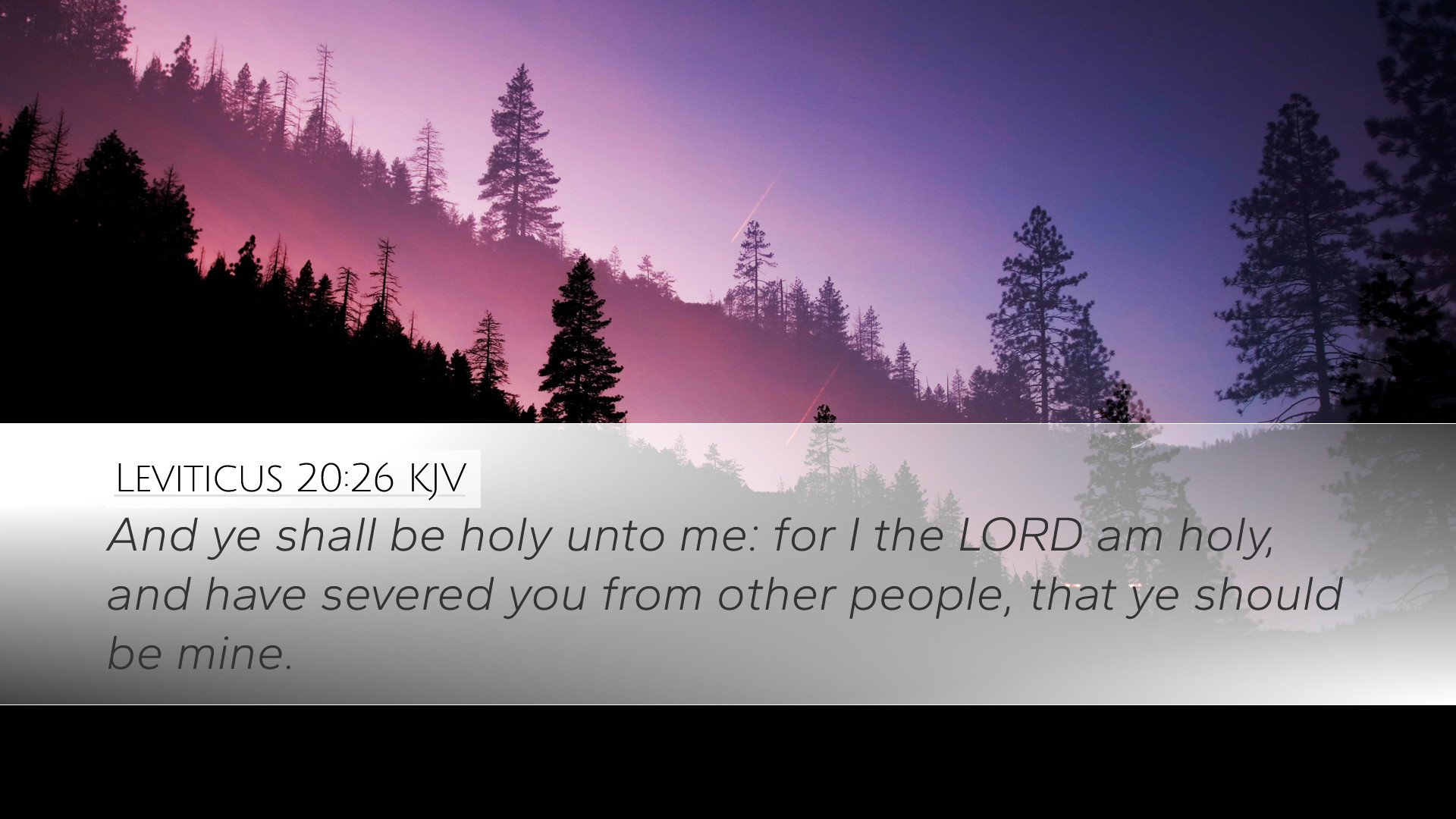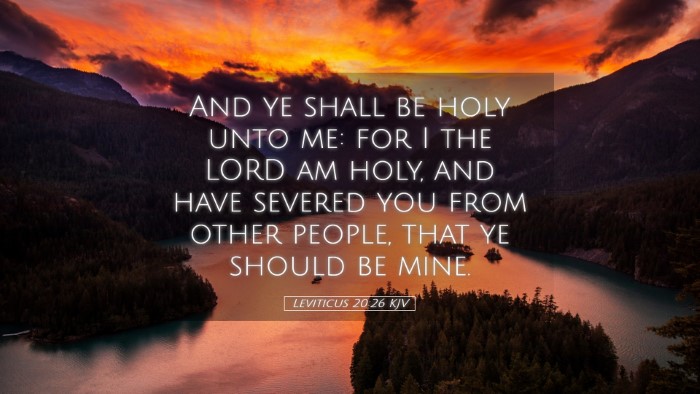Commentary on Leviticus 20:26
Verse Overview: "And ye shall be holy unto me: for I the LORD am holy, and have severed you from other people, that ye should be mine." (Leviticus 20:26, KJV)
Introduction
The verse stands at the heart of the Torah's call for holiness among the Israelites. It encapsulates the theological foundation for the distinctiveness of God's chosen people, their moral obligations, and their unique relationship with Him. This commentary seeks to explore the implications of this verse through the insights of noted biblical commentators including Matthew Henry, Albert Barnes, and Adam Clarke.
Exegesis of Leviticus 20:26
Call to Holiness: The command, "ye shall be holy unto me," stresses that holiness is not merely an option for the people of Israel but a requirement. Matthew Henry writes, "Holiness is required of them as a token of their relation to God, and an evidence of his special love towards them." The term "holy" implies being set apart, reflecting God's own character.
Divine Nature: The phrase "for I the LORD am holy" serves as the grounding for Israel's holiness. Adam Clarke emphasizes that God's holiness is the basis for the laws He has given. The holiness of God calls for a corresponding holiness in His people, which suggests that their conduct should mirror His divine attributes.
Separation from Other Nations: The next part, "have severed you from other people," indicates a clear demarcation between Israel and the surrounding nations. Albert Barnes points out that this separation serves both a protective and a sacramental purpose: Israel is protected from the corrupting influences present in other nations while being called to a distinctive way of life that honors God.
Theological Implications
The implications of Leviticus 20:26 extend beyond mere ritualistic observance. It speaks to the very identity of the Israelites as a people called into a covenant relationship with God.
- Identity and Mission: The call to holiness is an identity-forming statement. It declares that Israel is not just another nation, but a people with a divine mission. According to Matthew Henry, "They are to be to the glory of God, and the good of humankind."
- Moral Responsibility: Holiness implies moral accountability. Israel's behavior was to reflect their unique relationship with God, as Barnes notes, "This implies a behavior that stands out in righteousness and moral integrity."
- Community of Faith: The call to holiness fosters a sense of community among the Israelites. Adam Clarke points out that holiness cultivates fellowship; where holiness abounds, so does unity among believers.
Practical Application for Believers
This verse, while anchored in the Old Testament, resonates profoundly with New Testament believers as well. The call to holiness remains pertinent for Christians today.
- Pursuit of Holiness: Just as the Israelites were to strive for holiness, Christians are encouraged to pursue a life that reflects Christ's character. In 1 Peter 1:16, Peter reiterates this call: "Be ye holy; for I am holy."
- Understanding Separation: The concept of being 'separated' applies to believers who are called to live distinctly in a world that often contradicts God’s standards. As Clarke indicates, this separation is not isolation; rather, it’s an active engagement with culture while adhering to divine principles.
- Community and Fellowship: The communal aspect of holiness reminds believers of their responsibility to support one another in their faith journey. As believers are set apart, they are also called to encourage collective holiness through accountability and discipleship.
Conclusion
Leviticus 20:26 serves as a profound reminder of God's holiness and the implications of that holiness for His chosen people. As pastors, students, theologians, and scholars reflect upon this verse, they are invited to consider not only its historical context but also its enduring message for the Church today. In recognizing their identity as a holy people, believers are called to live in a manner that reflects God's glory and serves as a testament to His transformative power.


